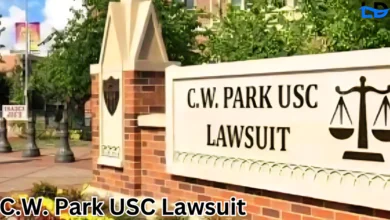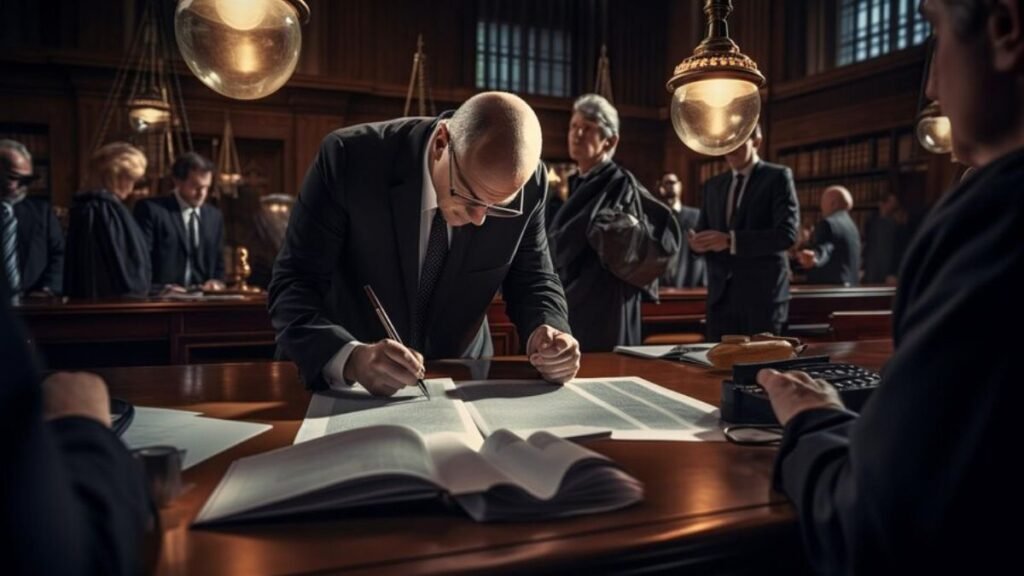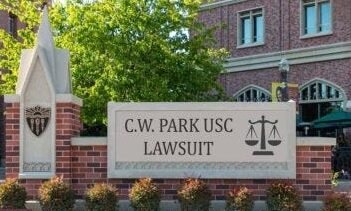Introduction
The C.W. Park USC lawsuit has attracted considerable attention, primarily due to the involvement of a prominent professor and the prestigious University of Southern California (USC). This article aims to explain the key aspects of the case, breaking down the complex legal matters into simple, easy-to-understand terms.
Background
C.W. Park, a professor at USC’s Marshall School of Business, has been at the center of a legal dispute involving the university. The lawsuit revolves around allegations related to employment practices, academic freedom, and contractual obligations. C.W. Park USC Lawsuit The case highlights the ongoing challenges faced by academic institutions and their faculty members, particularly regarding how they handle internal conflicts and uphold professional standards.

The Allegations
C.W. Park USC Lawsuit The core of the lawsuit involves Professor Park’s claims against USC, which include:
Breach of Contract: Professor Park alleges that USC violated the terms of his employment contract. This could involve issues like salary disputes, job responsibilities, or promises made by the university that were not fulfilled.
Retaliation: Park claims that after he raised concerns or voiced criticisms about certain practices at USC, the university retaliated against him. Retaliation in this context could mean any negative action taken against an employee, such as demotion, denial of promotions, or creating a hostile work environment.
Academic Freedom: Another critical aspect of the lawsuit is the issue of academic freedom. Professors often have the right to express their opinions, conduct research, and teach without interference from the university. Park alleges that USC infringed on these rights, limiting his ability to perform his duties freely.
USC’s Response
USC has responded to the lawsuit by denying the allegations. The university asserts that it has acted in accordance with all legal and contractual obligations. USC may argue that any actions taken were justified and in line with university policies.
Legal Proceedings

The C.W. Park USC Lawsuit is currently making its way through the legal system. Both parties have likely submitted documents, evidence, and witness testimonies to support their respective positions. The court will examine these materials to determine whether USC breached its contract with Park, whether retaliation occurred, and if academic freedom was violated.
Potential Outcomes
The outcome of the lawsuit could vary depending on the evidence presented and the court’s interpretation of the law. Some possible outcomes include:
Settlement: Both parties might agree to a settlement before the case goes to trial. This would involve USC possibly offering compensation to Park in exchange for dropping the lawsuit.
Court Ruling in Favor of Park: If the court sides with Park, he could receive financial compensation, reinstatement of lost job positions, or other remedies.
Court Ruling in Favor of USC: If the court finds that USC did not breach its contract or retaliate against Park, the lawsuit could be dismissed, and no compensation would be awarded.
Broader Implications
The C.W. Park USC lawsuit could have broader implications for the academic community. It raises questions about how universities handle disputes with their faculty and the extent to which academic freedom is protected. The case might also influence future employment contracts and policies at educational institutions across the country.
Case Study: The C.W. Park USC Lawsuit
Introduction

This case study explores the legal dispute between C.W. Park, a professor at the University of Southern California (USC), and the university itself. The case centers on allegations of breach of contract, retaliation, and violations of academic freedom. It serves as an example of the challenges that can arise in academic institutions and how legal issues can impact both individuals and organizations.
Background
C.W. Park is a well-respected professor at USC’s Marshall School of Business. Over the years, he contributed significantly to the university through his teaching, research, and service. However, a conflict arose when Park felt that USC was not honoring certain terms of his employment contract. He also believed that the university retaliated against him after he raised concerns about certain practices, which he viewed as limiting his academic freedom.
Park decided to file a lawsuit against USC, claiming that the university’s actions were not only unfair but also illegal. The lawsuit has since gained attention for its potential implications on how universities manage their faculty and uphold academic principles.
Key Issues
Breach of Contract: Park alleges that USC failed to honor specific promises made in his employment contract, such as salary agreements, job duties, and other benefits. A breach of contract occurs when one party does not fulfill its obligations as outlined in an agreement.
Retaliation: According to Park, after he voiced his concerns, USC retaliated against him by creating a hostile work environment or taking adverse actions against him. Retaliation in the workplace is illegal and can include actions like demotion, negative evaluations, or denying opportunities.
Academic Freedom: One of the central issues in the case is academic freedom, which allows professors to teach, research, and express their views without interference. Park claims that USC limited his academic freedom, affecting his ability to perform his duties as a professor.
Legal Proceedings
The lawsuit is being processed in the court system, with both Park and USC presenting their evidence and arguments. The court will examine whether USC breached its contract with Park, if retaliation occurred, and whether academic freedom was indeed compromised.
Possible Outcomes
The outcome of this case could set a precedent for similar disputes in academic institutions. Possible outcomes include:
Settlement: USC and Park may reach a settlement outside of court, where the university compensates Park, and the lawsuit is dropped.
Court Ruling in Favor of Park: If the court finds USC at fault, Park could receive compensation, reinstatement, or other remedies.
Broader Implications
This case highlights the importance of clear contracts, the protection of academic freedom, and the need for fair treatment of faculty members. It may influence how universities handle similar conflicts in the future and could lead to changes in policies and practices.
Conclusion

The C.W. Park USC lawsuit serves as a significant example of the legal and ethical challenges that can arise in academic settings. As the case unfolds, it will likely provide valuable insights into the balance between university governance and individual rights within higher education.
FAQ: C.W. Park USC Lawsuit
What is the C.W. Park USC lawsuit about?
The lawsuit involves C.W. Park, a professor at the University of Southern California (USC), who claims that the university breached his employment contract, retaliated against him for raising concerns, and violated his academic freedom.
What is a breach of contract?
A breach of contract occurs when one party fails to fulfill its obligations as outlined in an agreement. In this case, Park alleges that USC did not honor certain promises made in his employment contract, such as salary and job duties.
What does retaliation mean in this context?
Retaliation refers to negative actions taken against an employee because they raised concerns or reported issues. Park claims that after he voiced his concerns, USC retaliated by creating a hostile work environment or taking adverse actions against him.
What is academic freedom?
Academic freedom is the right of professors to teach, research, and express their views without interference from the university. Park alleges that USC limited his academic freedom, affecting his ability to perform his duties.
What are the possible outcomes of the lawsuit?
The lawsuit could result in a settlement, a court ruling in favor of Park, or a court ruling in favor of USC. A settlement would involve both parties agreeing to resolve the matter outside of court. A ruling in Park’s favor could lead to compensation or other remedies, while a ruling in USC’s favor could result in the dismissal of the case.
Why is this lawsuit significant?
The case is significant because it highlights important issues related to employment contracts, retaliation, and academic freedom in higher education. It could influence how universities handle similar disputes in the future and lead to changes in policies and practices.
What should I learn from this case?
This case underscores the importance of clear communication in employment contracts, the protection of academic freedom, and the fair treatment of faculty members. It also illustrates the potential legal consequences when these elements are not properly managed.
Conclusion
The C.W. Park USC lawsuit is a complex legal matter that touches on important issues like employment rights, academic freedom, and university governance. While the outcome is still uncertain, the case underscores the challenges faced by both universities and their faculty members in navigating the legal and ethical dimensions of academic life. As the case progresses, it will likely continue to be a topic of interest and discussion within the higher education community.
